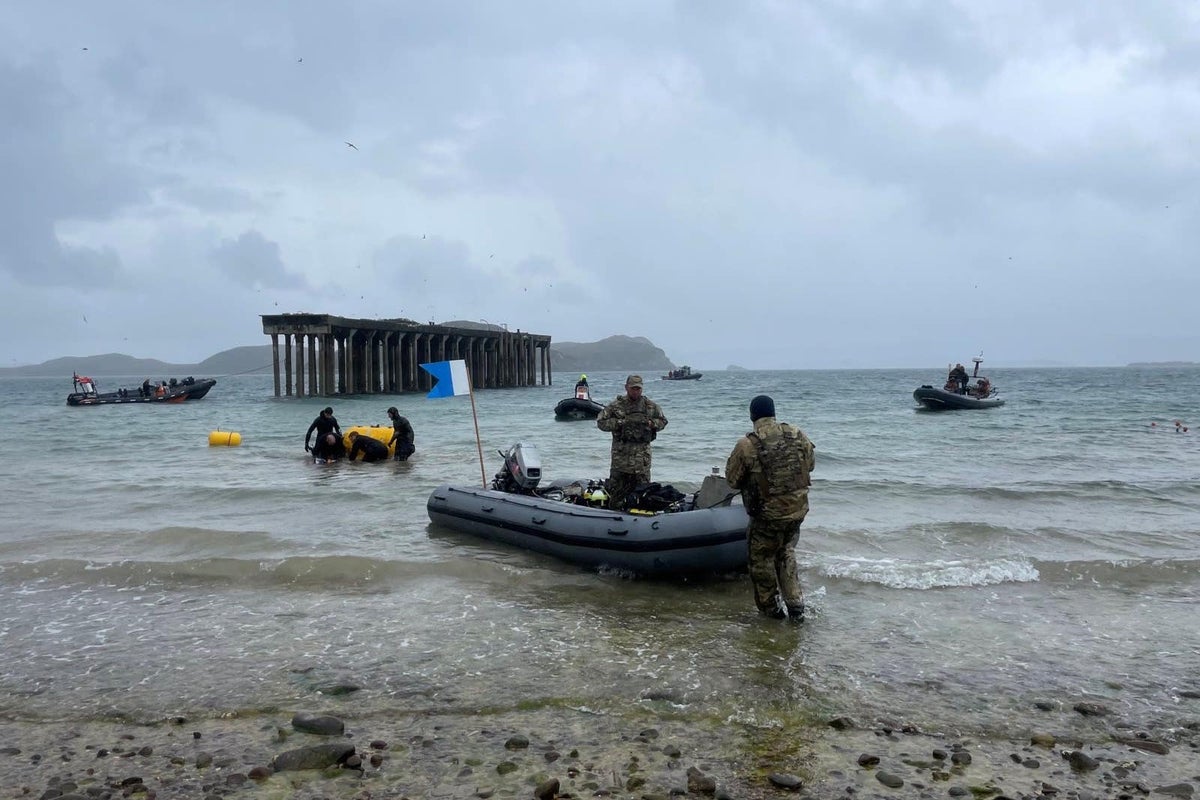
Ukrainian troops have been on exercises in Scotland learning how to disarm and defuse Russian bombs, booby traps and mines.
Royal Navy divers, bomb disposal specialists and mine warfare experts have been training their Ukrainian counterparts on finding and neutralising explosive devices in the north-west Highlands.
Specialist personnel from the Royal Navy’s Diving and Threat Exploitation Group (DTXG) used the waters of Loch Ewe to pass on their knowledge and expertise to Ukrainian Navy divers, explosive ordnance disposal operators and personnel who work with uncrewed underwater vehicles.
Sailors from Delta Diving Unit 1 and DTXG’s operational support squadron delivered the training alongside Nato allies, building on the existing knowledge and skills of the Ukrainian expeditionary mine countermeasures team and helping them prepare for future operations.
The training ranged from clearing deep water shipping lanes to rendering shallow water and beaches safe for amphibious raids.
It also covered clearing ports, jetties and any other infrastructure from potential threats.
Lieutenant Ali Aindow, the officer in charge of Delta Diving Unit 1, said: “It’s been great to be working with our close allies and partners again.
“We have been able to reinforce relationships and cohere into a single, multi-national force able to find and destroy underwater or maritime threats for the task group commander.”
She added: “The Ukrainian Navy divers have been great, it’s been a brilliant opportunity to share experience and learn techniques from each other. The Ukrainians are really focused and their enthusiasm for the training has been amazing.”
Teams trained with crewless underwater vehicles: submarine robots packed with cutting-edge technology such as sensors which generate images of objects so operators can identify any threats.
Once a threat was identified, the divers moved in to neutralise the device and make the area safe.
The training dealt with all types of exercise targets: free-floating buoyant mines; ground mines; and improvised explosive devices in, on and around the water.
“This training has delivered real value,” said Lieutenant Commander David Starkey, commanding officer of DTXG Delta and Echo Squadrons.
“The operational capability of all the nations has improved and this continued effort, working together again, has led to a really integrated team developing to counter explosive threats in the maritime environment.
“The relationships between the units and personnel continues to grow, bound by a common purpose and shared values. It demonstrates how we are stronger as a coherent team and how together we can defeat aggression to our nations’ sovereignty.”
Lieutenant Frank Macleod, part of the Royal Navy training team, added: “The Ukrainians have been fantastic, motivated and very professional sailors.
“We have learnt together over the last few weeks and delivered a very credible search capability.”







